Wellsy wrote:
tortuously
Well, you *warned* me. (!) (grin) Welcome-to-sociology, huh -- ?
I'd say 'practice' = *event*.
(Please note all greater 'levels' of 'magnitude' *above* 'events' / ('practices'). 'Practices' could also translate to higher-level, more-sustaining 'institutions' ('movements / institutions' in the diagram.)
History, Macro-Micro -- Political (Cognitive) Dissonance
[1] History, Macro Micro -- Precision
---
Wellsy wrote:
@ckaihatsu
I am aware traditions tends to extend across centuries and are even constituted by several practices. I keep Alasdair MacIntyre in mind here.
https://ecommons.udayton.edu/cgi/viewcontent.cgi?article=1064&context=rel_fac_pub
Wellsy wrote:
And what you present as a dilemma is simply a limitation of history.
https://www.ethicalpolitics.org/ablunden/works/determinism.htm
Yeah -- that's what *I'm* saying -- 'traditions' take place over *long* timeframes, longer than any one person's given lifetime, so that an academic / organizational approach is a *must*, to study such 'long waves' of cultural development.
Wellsy wrote:
What I am curious about is how a conservative navigates such traditions and practices and selects what is valuable and what has degenerated. As there is often w call to protect the wisdom of past practices. I’m wondering if there is something more to it than an arbitrary projection if what one already values onto the past like how utopians project the present into the future.
Regarding the *right* wing -- (and, yes, the left-right distinction *does* make a difference / is-pertinent) -- I *am* currently terming them as 'NIMBYists':
ckaihatsu wrote:
I realized that the NIMBY ultra-nationalists / violent Trumpist loyalists, conform to *Foucault's* theory of power:
Foucault's power analysis begins on micro-level, with singular "force relations". Richard A. Lynch defines Foucault's concept of "force relation" as "whatever in one's social interactions that pushes, urges or compels one to do something."[200] According to Foucault, force relations are an effect of difference, inequality or unbalance that exists in other forms of relationships (such as sexual or economic). Force, and power, is however not something that a person or group "holds" (such as in the sovereign definition of power), instead power is a complex group of forces that comes from "everything" and therefore exists everywhere. That relations of power always result from inequality, difference or unbalance also means that power always has a goal or purpose. Power comes in two forms: tactics and strategies. Tactics is power on the micro-level, which can for example be how a person chooses to express themselves through their clothes. Strategies on the other hand, is power on macro-level, which can be the state of fashion at any moment. Strategies consist of a combination of tactics. At the same time, power is non-subjective according to Foucault. This posits a paradox, according to Lynch, since "someone" has to exert power, while at the same time there can be no "someone" exerting this power.[199]
https://en.wikipedia.org/wiki/Michel_Foucault#Politics
viewtopic.php?p=15253344#p15253344
And:
[6] Worldview Diagram
Worldview Diagram
---
Wellsy wrote:
https://www.ethicalpolitics.org/ablunden/pdfs/Virtue%20and%20Utopia.pdf
The mere posing of socialist society as an end is misconceived. It is not a question of bringing means and ends into conformity, as many argue, and any attempt to do so can only lead to a barren utopianism by subordinating our means ‒ our organising practices of today ‒ to an imaginary utopia ‒ a world in which the socialist ethic has been universalised. In fact, when I do this, what is actually happening is that:
I begin with my spontaneously adopted ethics;
I then (consciously or unconsciously) project them on to a future socialist society, and
I then deduce the ethics with which I actually began, but now with the illusory justification that it prefigures our shared end, socialist society.
In other words, it is a fraud. (It is somewhat like the argument which project capitalist competition on to Nature, and then claimed that competition is the way of the world, human as well as natural). It implies discussing how to collaborate here and now in terms of how we think people living in some imaginary future society would collaborate, when differences in wealth, power, education and welfare have been overcome and no longer have to be taken into account.
I suppose that *is* an accurate description of utopianism / utopian-thinking, then.
*My own* conclusion -- and you're free to call it 'projecting into the future', if you like -- is that *some* kind of social conditions of 'material factionalism' will always continuously exist, in greater or lesser degrees of *intensity*, depending on the given mode-of-production. For *capitalism*, obviously material legacies of *wealth* are conferred with disproportionate social importance and deference -- especially for matters of social-production.
Could a world conceivably / potentially liberated from private property be so-freed to produce for *itself* -- ? Is that too much 'projecting' -- ?
ckaihatsu wrote:
There's *no hint of economic democracy here*, as has been noted before -- the overall capitalist political economy is one of 'fixed' material-world 'policy' norms, inherently split along timeless socio-material social *roles* / relations, whether lifelong or shifting -- what I call 'inherent material factionalism'.
viewtopic.php?p=15253905#p15253905
---
Social Production Worldview
Consciousness, A Material Definition
---
Wellsy wrote:
My cynical side characterizes many conservatives as just defending norms which people have since done away with as they became fetters on better ways of life. It seems to me that often there is an attachment to views and values that originate from and existed within particular ways of life that fell away and so to did the values.
Even religions have had to adapt and change to different conditions and challenges yet it still retains continuity like any tradition where earlier critiques result in a specific development in the institutions. Many are now looking at the Catholic church to significantly address the continuation and conditions of the broad child abuse that has been covered up, hurting a lot of peoples connection to the church.
All-of-society, I would argue -- look at the women's march (2017), and BLM (2020), particularly.
(Schematically that's the 'movements / institutions' level tipping in favor of 'movements', over 'institutions'.)
[1] History, Macro Micro -- Precision





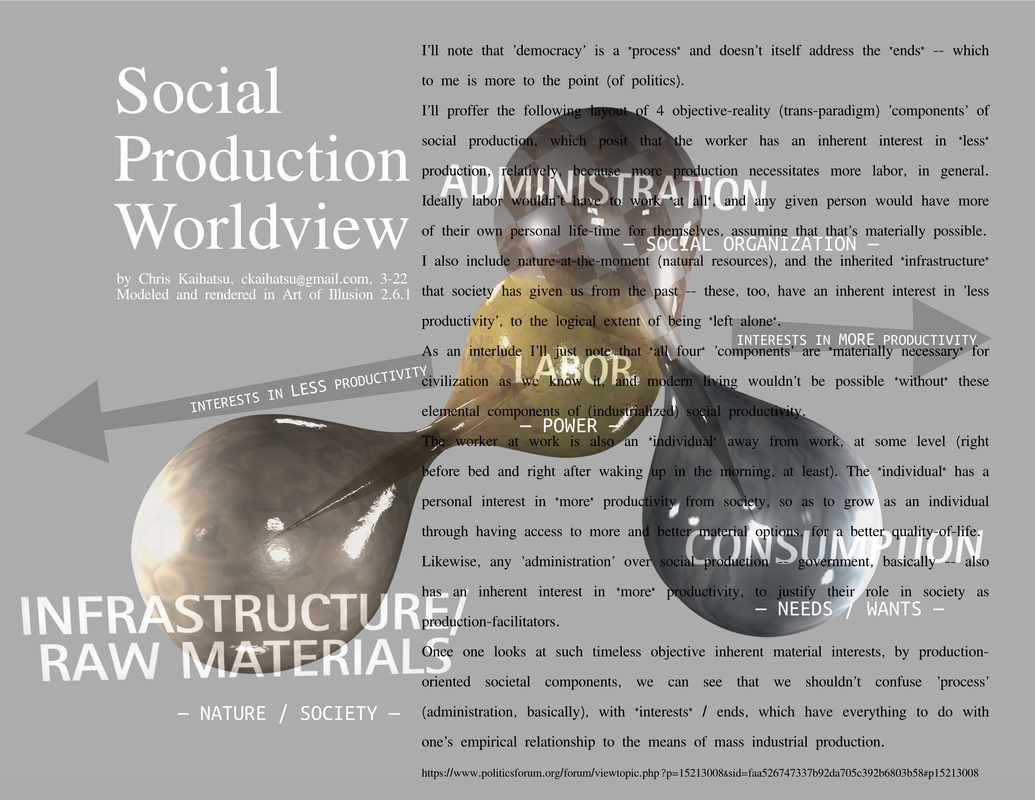
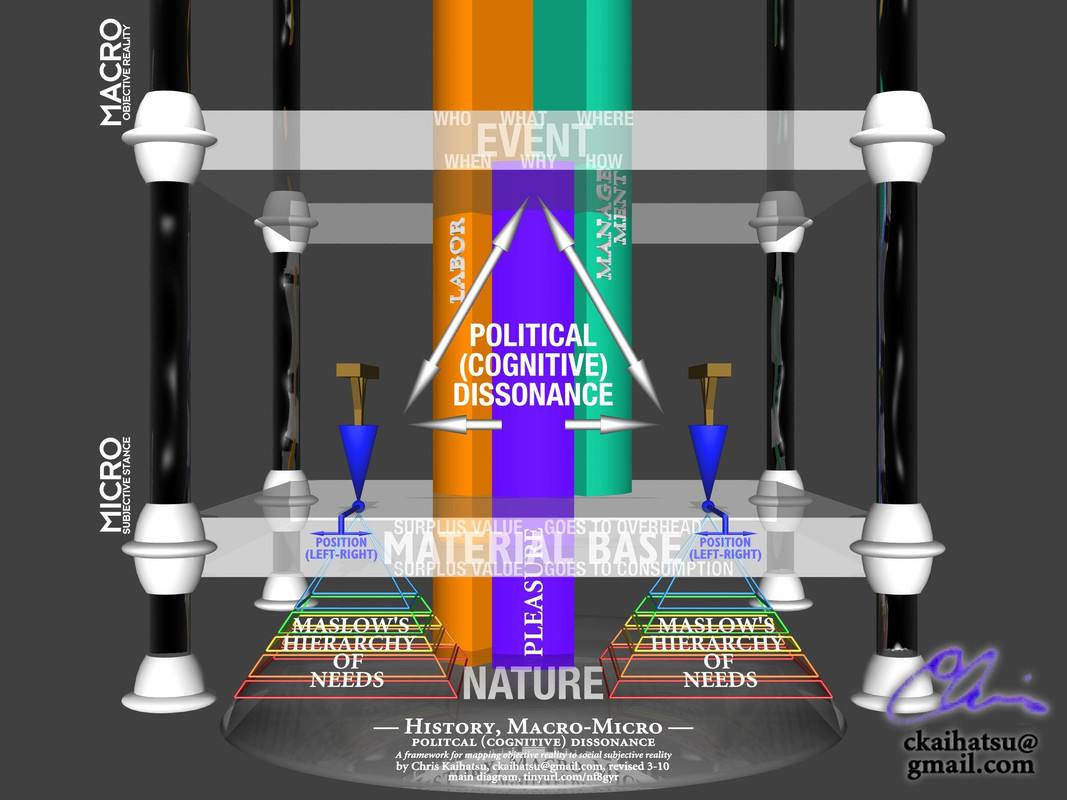
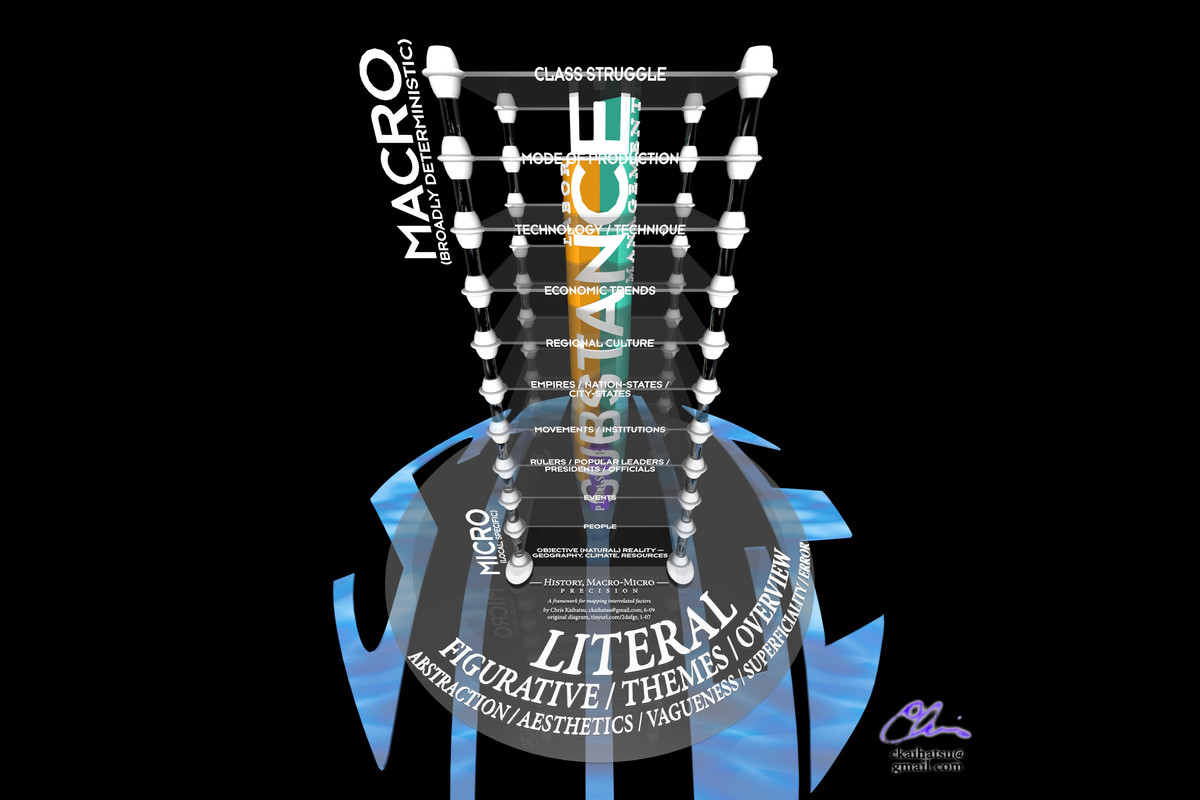
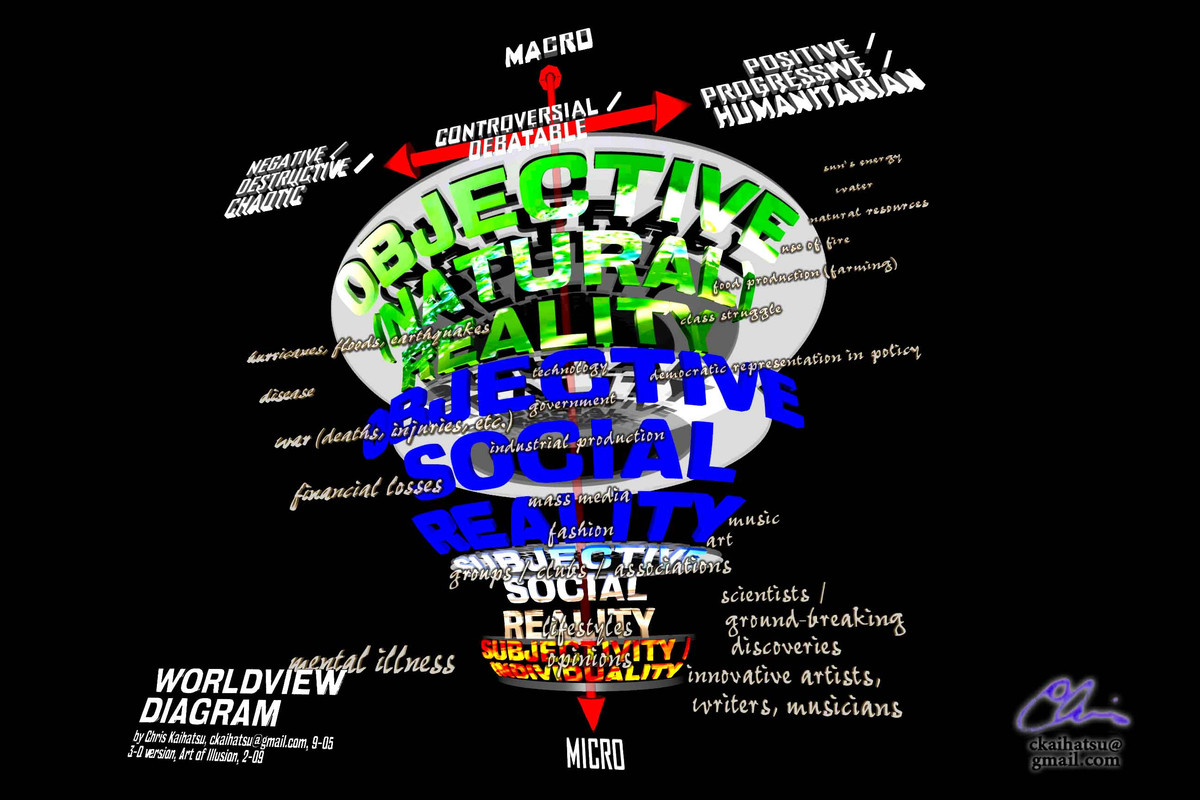
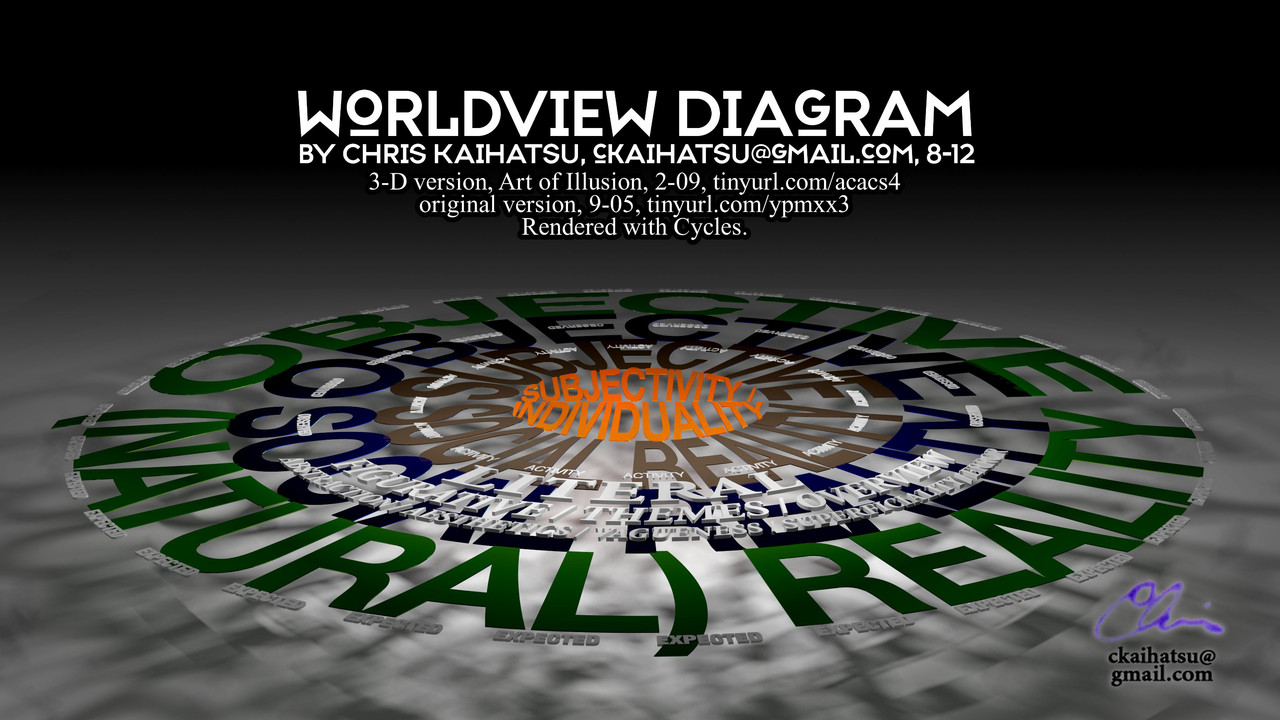
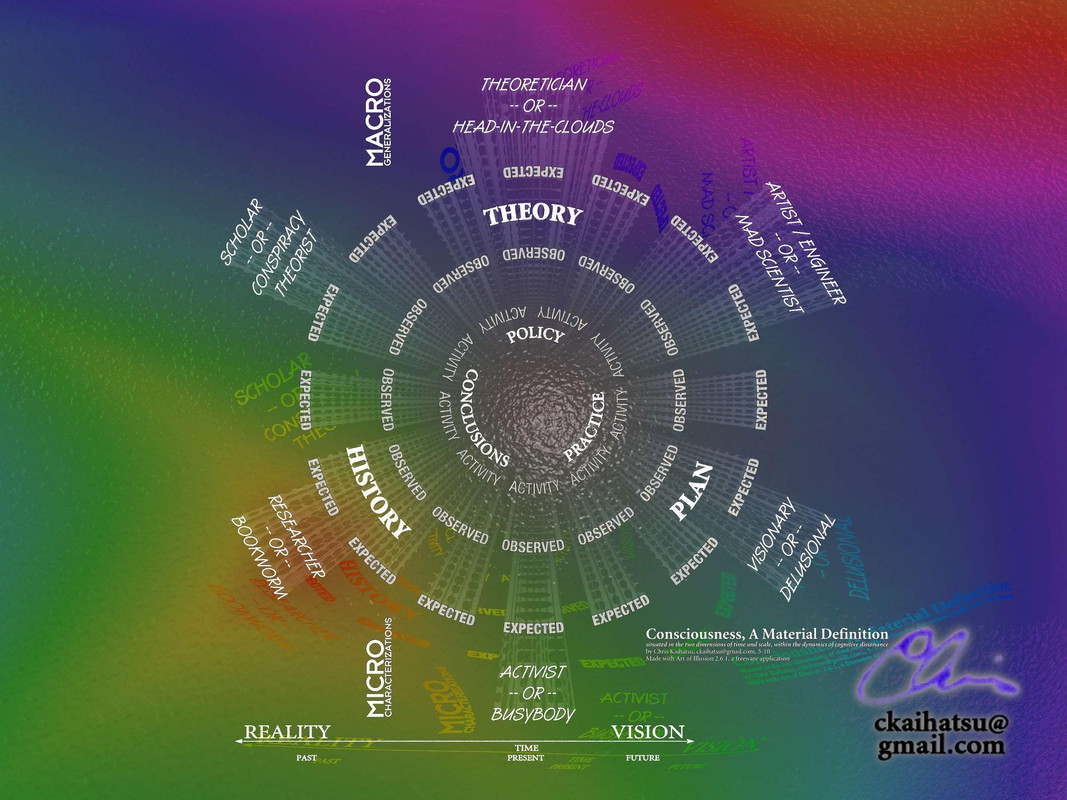
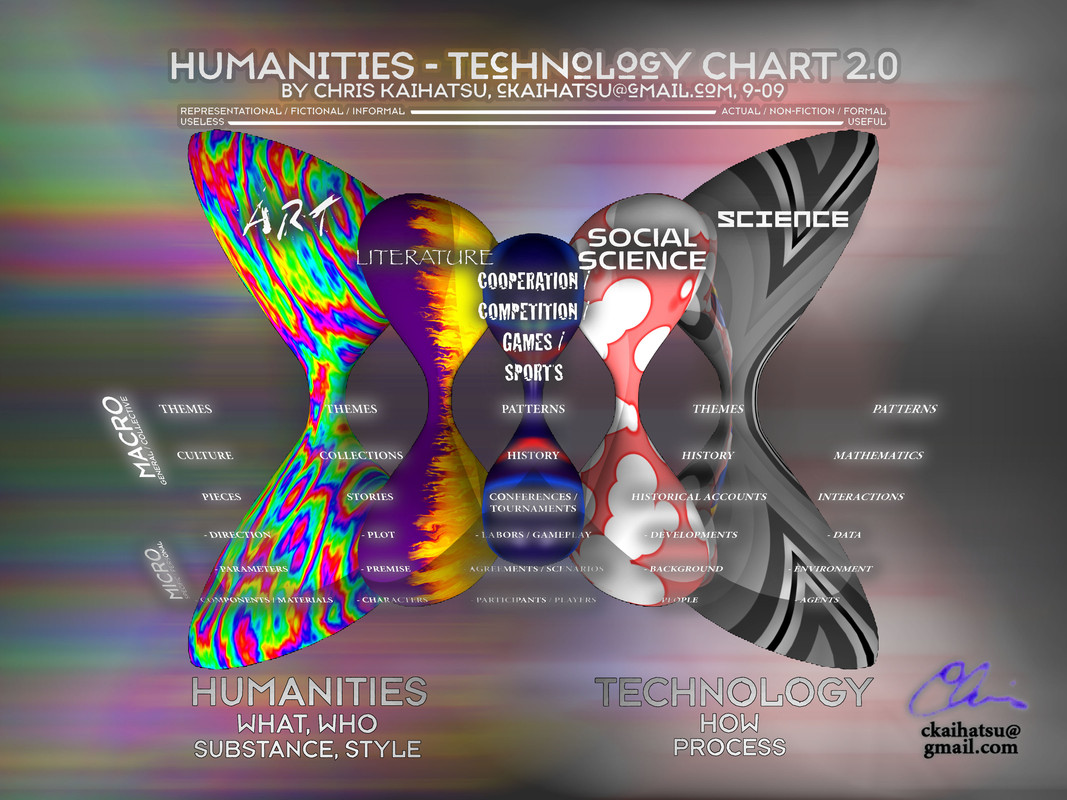


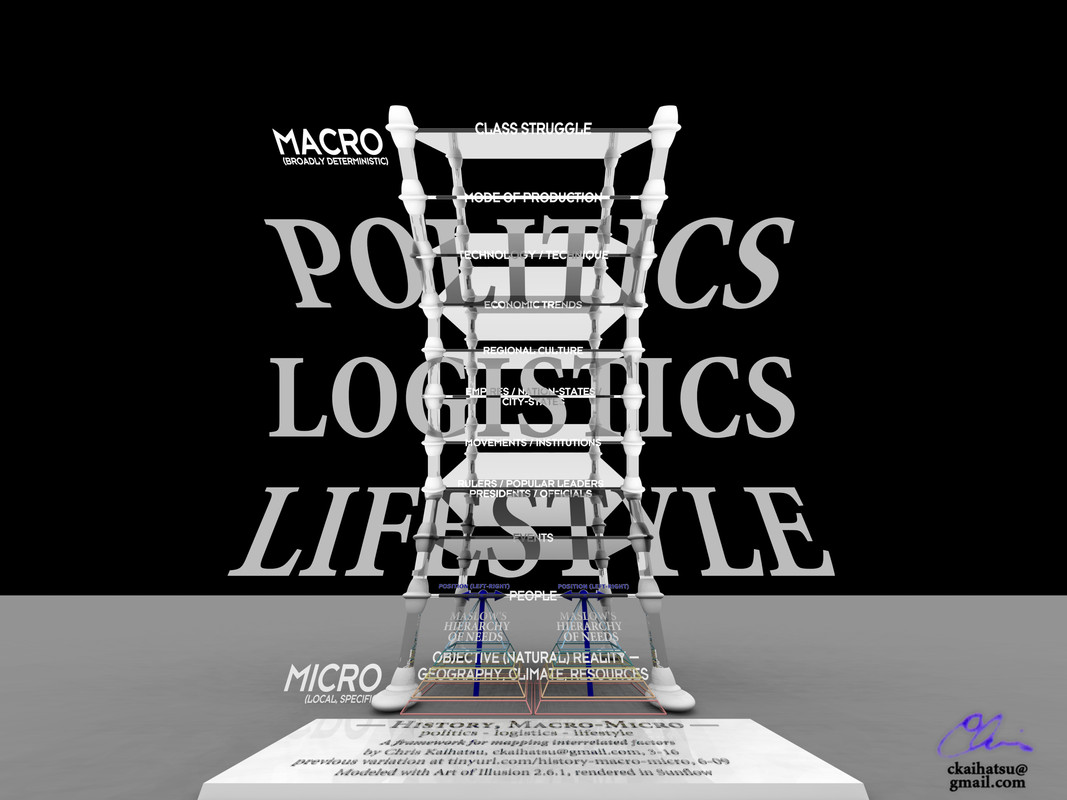
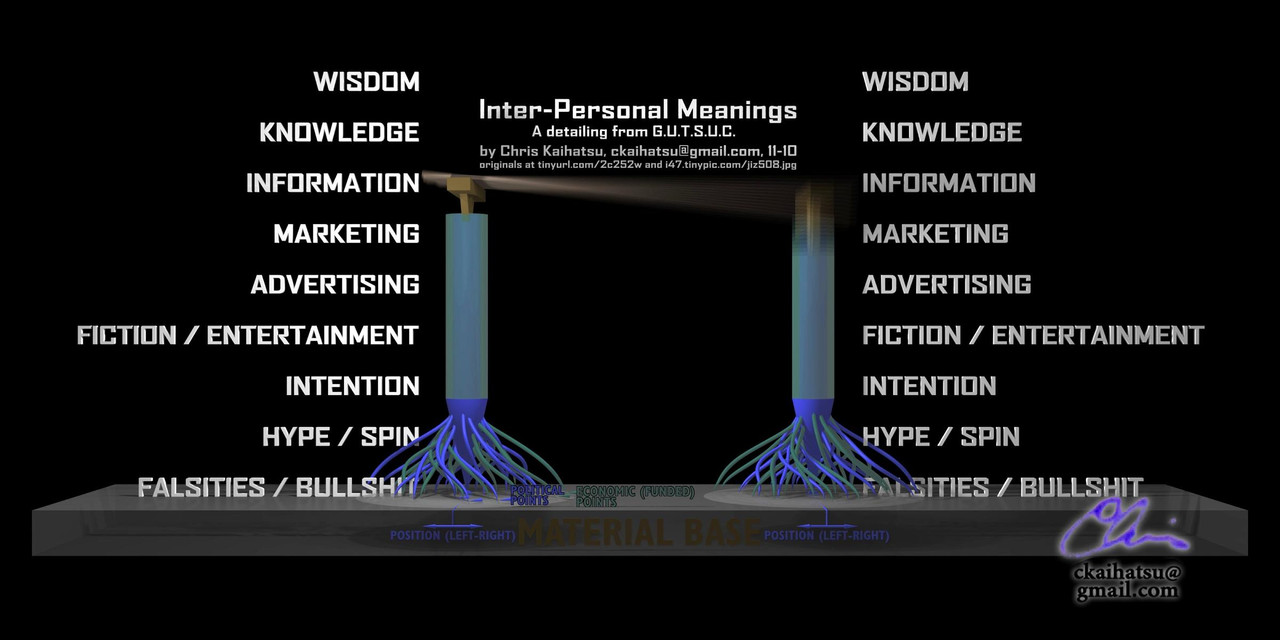
 - By Rich
- By Rich